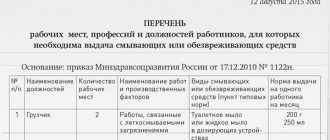How are gifts made?
To give gifts to employees, you need to draw up an appropriate administrative document - an order from the director. If the cost of the gift is more than 3,000 rubles, the donation is formalized by a written agreement in accordance with Art. 574 Civil Code of the Russian Federation. The agreement can be formalized as a multilateral one if there are many employees (Article 154 of the Civil Code of the Russian Federation). In addition, you need to create a statement for the transfer of gifts - in it, the staff will confirm with a signature the receipt of the gift.
In general, gift processing is carried out using the following steps:
- issuance of an order, which the staff reads and signs;
- generation of a statement and signature by each employee at the time of receipt of the gift;
- execution of a gift agreement when the value of the gift is more than 3,000 rubles.
The contract specifies the name of the gift, the date and place of preparation, information about the company and employees, a description of the gift with characteristics and cost, and the signatures of the parties.
Reflection of gifts to employees in personal income tax registers
Salaries and personnel – Directories and settings – Accruals – Create.
When receiving income in kind, the tax base is determined as the market value of the gift including VAT and excise tax (paragraph 2, paragraph 1, article 211 of the Tax Code of the Russian Federation).
- the date of actual receipt of income is the date of issuance of gifts (clause 2, clause 1, article 223 of the Tax Code of the Russian Federation);
- the date of withholding personal income tax from income is the nearest date of payment of income in cash (clause 4 of article 226 of the Tax Code of the Russian Federation);
- the deadline for transferring personal income tax by the tax agent is no later than the day following the day the income is paid to the taxpayer (clause 6 of Article 226 of the Tax Code of the Russian Federation).
Report 6-NDFL
How are gifts reflected in accounting?
To display a gift in accounting, you do not need to use an account. 70, since it is not related to the performance of official functions. It is advisable to use the account. 73.
The following correspondence must be reflected in accounting:
- Buying a present
Dt 10 Kt 60 - reflection of the purchase price;
Dt 19 Kt 60 - accounting for input VAT;
Dt 68 Kt 19 - application for deduction of input VAT.
The purchase of a gift can also be reflected in another way - the cost is charged directly to the account. 91 excluding account. 10. Accounting for gifts for employees’ children should be reflected on the balance sheet, for example, on the account. 012. This point is due to the fact that acquired values are not considered an asset, because the employer does not plan to receive economic benefit from their use.
- Presentation
If the gift is a valuable property:
Dt 73 Kt 41 (10, 43) - issuance of a gift;
Dt 91 Kt 73 - attribution of cost to costs;
Dt 91 Kt 68 - accrual of VAT on the gratuitous transfer of a gift;
Dt 70 Kt 68 - withholding personal income tax from a gift worth more than 4,000 rubles;
Dt 99 Kt 68 - reflection of a permanent tax liability in the amount of 20% of the value of the gift;
If the gift is in the form of money:
Dt 73 Kt 50 - issuance of funds from the cash register;
Dt 91 Kt 73 - recognition of the cost of the gift as expenses;
Dt 70 Kt 68 - withholding personal income tax from a gift worth more than 4,000 rubles;
Dt 99 Kt 68 - reflection of a permanent tax liability in the amount of 20% of the value of the gift.
We write off the cost of gifts
The cost of gifts given, as well as the cost of any goods donated free of charge, is not taken into account when taxing profits. This follows from subparagraph 16 of Article 270 of the Tax Code of the Russian Federation.
At the same time, in accounting, the cost of gifts must be reflected as part of other expenses. As a result, there is a permanent difference and a permanent tax liability.
Example 2
The company purchased a gift worth 2,360 rubles (including VAT at the rate of 18%, that is, 360 rubles) and presented it to the employee. The cost of the gift is not reflected in tax accounting, but is written off as other expenses in accounting. The accountant made the following entries:
DEBIT 91 subaccount “Other expenses” CREDIT 73 - 2,000 rubles (2,360 - 360) - the purchase price of the gift is written off as expenses; DEBIT 99 CREDIT 68 - 400 rub. (RUB 2,000 x 20%) - reflects a permanent tax liability.
If the company presented gifts as incentives based on work results (and this corresponds to the provision on bonuses), then the cost of the gift can be written off in tax accounting. But in the case when incentives in the form of gifts are issued regularly for the New Year, March 8 and anniversaries, inspectors will most likely regard this as a gratuitous transfer and “remove” such expenses.
Features of gifts for clients
Gifts to contractors or clients are a gratuitous transfer that is subject to VAT. In addition, the cost of such gifts does not reduce income tax. To account for the costs of purchasing gifts, you need to have their documentary justification.
For example, it is possible to establish in the company’s internal documentation general criteria for counterparties or clients whose cooperation is economically significant for doing business. And as a way to retain customers, you can just specify the option of presenting valuable gifts on specific dates or holidays, the list of which also needs to be approved in local documents.
The delivery of postcards, as well as the costs for them, can be taken into account as part of other expenses.
Not a reward
When gifts given to employees are not related to their performance in the workplace, the account in which the gift should be accounted for depends on what the company is giving.
For example, gift certificates or theater tickets are used as gifts. In this case, their accounting is organized on account 50-3 in the amount of actual acquisition costs excluding VAT. Let us remind you that certificates and tickets, including transport tickets, are nothing more than a document confirming the right to claim certain goods or services. When donating, you need to make the following entries:
Dt 91-2 Kt 50-3 – the cost of gifts (tickets, certificates) given to employees is written off for other expenses.
For example, this is what accounting for New Year's gifts to employees looks like if the gifts are tickets to holiday performances for the employees' children.
When it comes to something material, such gifts are taken into account on account 10 “Materials” in the amount of actual purchase costs excluding VAT. In this case, it is necessary to issue the appropriate invoices (clause 132 of the Methodological Instructions, approved by order of the Ministry of Finance dated December 28, 2001 No. 119n).
For example, accounting entries for New Year's gifts to employees in the form of sweet sets will be as follows:
Dt 91-2 Kt 10 – the cost of gifts given to employees for other expenses is written off.
Procedure for taxation of gifts to staff or contractors
Personal income tax
Income tax is calculated on amounts over RUB 4,000. Moreover, personal income tax is calculated on both tangible and intangible income.
When calculating personal income tax you need to:
- summarize the cost of all gifts given to an employee in the reporting year;
- subtract 4,000 rubles from the result. — the amount of tax-free income;
- calculate personal income tax at a rate of 13% (for residents) and 30% (for non-residents).
If the gift is in the form of money, then personal income tax is withheld immediately on the day of payment, and is transferred no later than the day following the day the gift is given.
If the gift is not monetary, then personal income tax is withheld from the cash payment that is closest in date, and is transferred no later than the day following the day of withholding.
Insurance premiums
Regardless of how much the gift costs, insurance premiums do not need to be charged on it. This is stated in Art. 420 of the Tax Code of the Russian Federation or in Art. 20.1 of Law No. 125-FZ.
VAT
According to Art. 146 of the Tax Code of the Russian Federation, VAT must be charged on gifts, and on their purchase price without VAT. If a company donates its own products, then VAT is charged on its cost.
For all gifts according to the completed statement, you need to generate one invoice. Input VAT can only be deducted if there is a supplier invoice.
Income tax
According to Art. 270 of the Tax Code of the Russian Federation, there is no need to charge income tax on a gift. The fact is that it is transferred to the employee free of charge, and therefore its value does not need to be taken into account when calculating tax.
Summary of taxes and fees
In general, the following main points regarding taxes and fees can be identified:
- Personal income tax is paid on amounts greater than 4,000 rubles, calculated on an accrual basis. For residents the tariff is 13%, for non-residents - 30%;
- insurance premiums are not calculated and paid;
- VAT is charged on the cost of the gift without VAT or on the cost price;
- income tax is not calculated.
Accounting for New Year's gifts without hassle for an accountant
During the holidays, it is customary for many organizations to give gifts to employees, their children, partners or key clients. This is a pleasant surprise for the recipient, but an extra hassle for the accounting department. We offer you a kind of cheat sheet for accounting and taxing New Year's gifts.
E. Antipova, tax expert
Not everyday VAT Issuance of a gift from the point of view of taxation of the value of the gift VAT is a gratuitous transfer of property that falls under the concept of “sale” and, accordingly, under Article 146 of the Tax Code. That is, it is necessary to calculate value added tax on the value of gifts to employees, their children or other persons not connected with the organization by an employment contract (clause 1 of Article 146 of the Tax Code).
However, in some cases, the transfer of a gift can be removed from the concept of “sale” and, as a result, exempt from VAT. Namely: if a gift is given for high production results as an employee bonus. This approach is possible due to certain provisions of the Labor Code. Thus, according to paragraph 2 of Article 135 of the Code, wages include bonus systems that are established by collective agreements. And Article 191 prescribes rewarding employees who conscientiously perform their duties with valuable gifts. The types of incentives must also be established by the collective agreement. Thus, you do not give the employee a thing, but encourage his work activity within the framework of the company’s HR policy, that is, the cost of the gift is included in the remuneration system.







